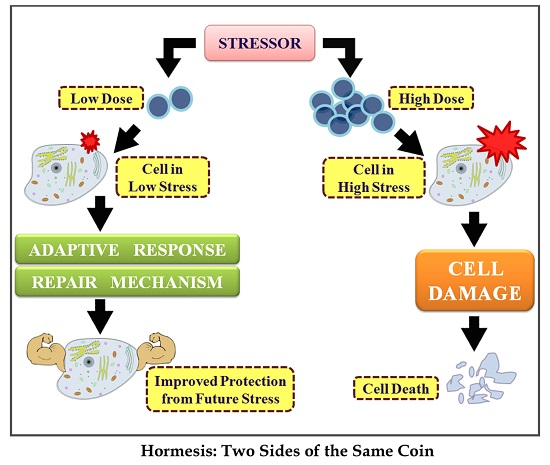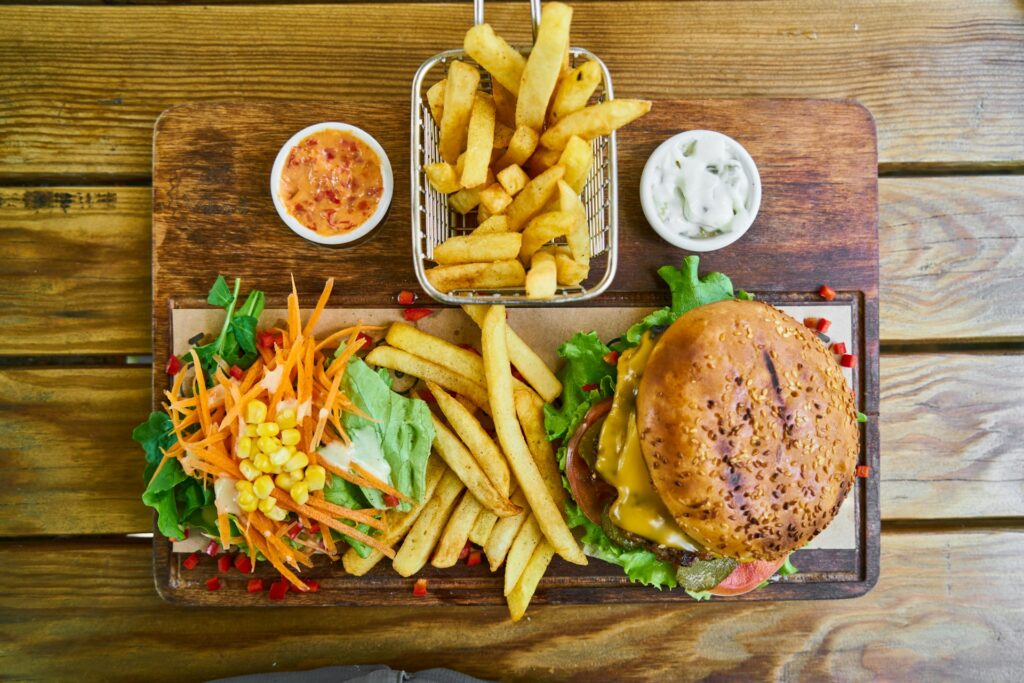What if aging wasn’t something we just had to accept? What if those wrinkles, that tired feeling, and the slow decline we think is normal… didn’t have to happen? This isn’t some wild idea; it’s what’s being discovered in the world’s top genetics labs.
One of the leaders in this movement is Dr. David Sinclair, a professor of Genetics at Harvard Medical School. His research is completely changing the way we think about getting older.
Dr. Sinclair believes aging is actually a disease. And the best part is, he thinks it’s treatable. And it’s not just talk. At 54, he looks younger than he did at 44, thanks to some key lifestyle changes. His lab tests even show that his body is biologically younger and healthier than ever.
So, what’s his secret? It all starts with what you eat. After years of groundbreaking research, Dr. Sinclair has pinpointed the foods that speed up aging.
This guide will walk you through the five foods you should never eat if you want to stay young, and it’ll explain the science behind why these foods mess with your body’s natural ability to stay youthful.
Contents
The Science of Staying Young: Your Body’s Two Modes

Before we dive into the foods to avoid, there’s a simple but important idea you need to understand: your body operates in two basic modes: “Growth & Aging Mode” and “Survival & Repair Mode.” Which one you’re in plays a huge role in how quickly you age.
Think of your genetic code like a perfect digital file stored on a CD. When you’re young, that CD is flawless, and your cells read it perfectly. According to Dr. Sinclair’s “Information Theory of Aging,” getting older is like getting scratches on that CD. Over time, your cells start misreading the genetic instructions, and this loss of information is what we experience as aging.
Luckily, your body has strong defense systems that help polish those scratches and keep everything running smoothly. These systems work best when your body is in “Survival & Repair Mode.”

This mode is triggered by something called hormesis, which is beneficial stress. When your body senses tough times, it shifts into repair mode and focuses on staying alive and healthy. Two key players are responsible for this repair process:
- Sirtuins: These are your “longevity genes,” like a team of cellular guardians. They repair DNA, reduce inflammation, and help keep your metabolism efficient. But they need fuel, specifically, a molecule called NAD+, to do their job.
- Autophagy: This is your cell’s recycling program. It goes through your cells, cleaning up old and damaged parts. This is crucial for preventing the buildup of junk that leads to age-related diseases.
The problem is, our modern lifestyle hardly ever activates “Survival & Repair Mode.” Instead, we’re often stuck in “Growth & Aging Mode.” This mode is controlled by a pathway called mTOR.
When you’re constantly eating, mTOR is always active. It tells your cells to grow and multiply, which is great when you’re young. But as an adult, constantly keeping mTOR active shuts down both autophagy and sirtuin activity. Essentially, this speeds up aging.
The five foods we’re about to talk about are the worst offenders. They keep your body locked in “Growth & Aging Mode,” preventing your natural youth-preserving systems from doing their job.
Also Read: These 5 Simple Exercises Build Strength and Stability From Head to Toe, Says Pilates Expert
The Anti-Aging Hit List: Foods Sabotaging Your Youth
Now that you’ve got a handle on how your body works in “Growth vs. Repair” mode, let’s talk about the biggest food culprits that fast-track aging. Cutting these out is a key part of Dr. David Sinclair’s approach to staying young.
1. Sugar (Glucose and Fructose) – The Sweet Poison

Sugar is public enemy number one when it comes to aging. Dr. Sinclair avoids it almost completely, and for good reason. Here’s what sugar does:
1. It spikes your blood sugar, triggering chronic inflammation, which is linked to nearly every age-related disease.
2. It causes your body to produce AGEs (advanced glycation end products), sticky molecules that damage proteins like collagen. This leads to sagging skin and wrinkles.
3. Worst of all, sugar activates insulin, which then flips on the mTOR pathway, the one responsible for keeping you in “Growth & Aging Mode.” That means less repair, less protection, and faster aging.
Every time you eat a sugary snack or sip a soda, you’re telling your body to age faster by shutting down key longevity systems like sirtuins and autophagy.
Craving something sweet?
Dr. Sinclair suggests using natural, no-calorie sweeteners like stevia or monk fruit instead.
2. Refined Carbs – Empty Energy That Ages You

Refined carbs are basically sugar in disguise. Foods like white bread, white rice, pasta, and pastries might not taste as sweet, but your body treats them almost the same way. Here’s why they’re a problem:
1. These foods have been stripped of fiber, so they digest super fast.
2. That leads to a quick spike in blood sugar and insulin, just like eating straight-up sugar.
3. Over time, this keeps your body stuck in Growth & Aging Mode, turning off key repair processes like autophagy and sirtuin activity.
And it’s not just theory. Real-world studies back this up. One large study of nearly 48,000 women found that those who ate lots of refined carbs had a 13% lower chance of healthy aging.
Meanwhile, women who got their carbs from vegetables, legumes, and whole grains had a much better shot at staying sharp and disease-free as they got older.
Quick fix?
Swap out the white bread or pasta for whole grains like quinoa, oats, or brown rice. It’s one of the simplest changes you can make to support long-term health and slow aging.
3. Red & Processed Meats – The “Grow” Signal That Speeds Up Aging

Your body needs protein. But where it comes from makes a big difference.
Red and processed meats (like bacon, sausages, and deli meats) contain certain amino acids that strongly activate the mTOR pathway.
That might sound good, but remember: mTOR keeps your body in “Growth & Aging Mode.” When that signal is constantly turned on, it speeds up aging and shuts down your body’s natural repair systems.
Even though Dr. Sinclair likes meat, he’s mostly cut it out and now focuses on plant-based proteins for this very reason. And the science backs him up. A major study published in Neurology found:
1. People who ate more processed red meat had a 13% higher risk of dementia.
2. Even more interesting is that replacing just one daily serving of processed meat with nuts or legumes lowered dementia risk by about 20%.
Better options:
Proteins from beans, lentils, nuts, and other plants give your body what it needs, without sending that aging signal.
4. Dairy – A Growth Signal That Doesn’t Fit

This one might catch you off guard: Dr. Sinclair avoids most dairy, and the reason has everything to do with how dairy works in the body.
Milk is a biological growth signal. It’s designed by nature to help baby cows grow rapidly. That means it’s packed with hormones, growth factors, and amino acids that strongly activate the mTOR pathway, the same one that keeps your body in “Growth & Aging Mode.”
When we drink cow’s milk, especially regularly, we’re basically flooding our bodies with signals that say: “Grow now, repair later.” Over time, this can speed up aging and increase the risk of age-related diseases.
Dr. Sinclair cut out dairy entirely, but the science suggests there’s a bit of nuance:
1. Fermented dairy (like plain yogurt or kefir) may be less harmful, since the fermentation process breaks down some of the compounds that activate mTOR.
2. Still, for optimal longevity, plant-based alternatives like almond, oat, or soy milk are the smarter choice.
Bottom line: Most dairy keeps your body locked in “growth mode,” and for aging well, that’s not where you want to be.
5. Alcohol – A Toxin That Ages You from the Inside Out

You’ve probably heard the old saying that a glass of red wine is good for you. Unfortunately, that idea is outdated. New research paints a very different picture.
Alcohol hits your body’s longevity systems with a double blow:
1. It drains your NAD+ – the molecule your body needs to fuel your sirtuins, those critical “longevity genes” that repair DNA and protect your cells. Without enough NAD+, those repair systems slow down.
2. It shortens your telomeres, the protective caps on the ends of your chromosomes. Shorter telomeres are one of the clearest signs of faster biological aging.
In simple terms, every drink is aging your cells. Even in small amounts, alcohol gets in the way of your body’s ability to stay healthy and youthful.
Dr. Sinclair has cut out alcohol entirely. But if you’re not ready to do the same, cutting back is a smart move.
If you do drink occasionally, go for red wine made from stress-grown grapes like Pinot Noir, which contain higher levels of resveratrol, a compound with some anti-aging benefits.
The Pro-Longevity Playbook: How to Activate Your Body’s Youth Mode
Cutting out those five aging foods is a huge win. You’ve basically taken your foot off the aging gas pedal. But if you really want to slow down time, or even reverse it, you need to press the other pedal: the one that activates your body’s built-in repair systems.
Dr. David Sinclair’s diet and lifestyle are all about switching on your “Survival & Repair Mode,” the state where your body cleans itself up, fixes damage, and fights aging at the cellular level. And the best way to get into this mode is through healthy stress. Here are three simple but powerful ways to do it:
Eat Less Often – Intermittent Fasting
One of the most effective ways to flip on your body’s longevity systems is by giving it a break from food. Dr. Sinclair eats in a 6- to 8-hour window each day.
This creates a long fasting period, where insulin drops, mTOR slows down, and your body activates autophagy, the process where cells clean out old, damaged parts and start fresh.
So, eating less often doesn’t just help with weight; it actually gives your cells time to repair and rebuild.
Exercise with Intensity – Short, Breathless Workouts
You don’t need to live at the gym. According to Dr. Sinclair, just 3 sessions a week of intense exercise is enough. Think 10 minutes where you’re out of breath and can’t easily talk.
This creates a state of low oxygen (hypoxia) in the body. That kind of stress activates your longevity genes, strengthens your mitochondria, and boosts autophagy.
Eat “Stressed” Plants – Nature’s Survival Signal
Why are plants so good for you? It’s not just the vitamins, but the stress signals they carry.
When plants face tough conditions (like too much sun or not enough water), they produce polyphenols, natural defense compounds. One of the most famous is resveratrol, found in grapes and red wine.
Dr. Sinclair’s research shows that when we eat these stressed plants, those same molecules tell our cells to activate their own survival and repair systems. Here’s what to eat:
- Dark leafy greens
- Bright-colored veggies (red, purple, dark green)
- Berries
- Olive oil
These foods are loaded with polyphenols and help trigger your body’s natural defenses against aging.
You Are the Driver of Your Biological Age
Living a longer, healthier life doesn’t require some magical fountain of youth. It just takes a better understanding of how aging works and the daily choices you make.
Thanks to research from Dr. David Sinclair and other leading scientists, we now know that what you eat has a huge impact on how fast your body ages.
By cutting out the foods that keep your body stuck in “Growth & Aging Mode,” you allow your natural repair systems to kick in: to heal, refresh, and keep you feeling younger for longer.
You are not at the mercy of your genes or your age. Start by cutting out just one of these foods to begin with, and your future self will be grateful to you.